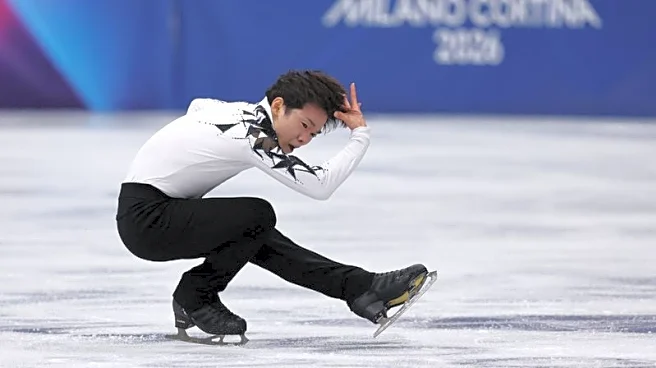What's Happening?
Sky Sports has announced an expanded coverage plan for the 2025/26 Women's Super League season, featuring 118 matches broadcasted, significantly increasing from previous seasons. The network will offer exclusive coverage of 78 fixtures and has secured rights to show matches from the Women's Championship and Women's League Cup for the first time. A new flagship program dedicated to Sunday lunchtime kick-offs will provide comprehensive coverage, including behind-the-scenes content and social media engagement. The broadcast team will include new analysts and presenters, enhancing the viewing experience with expert insights and interactive features.
Why It's Important?
The expanded coverage by Sky Sports represents a significant investment in women's football, potentially increasing visibility and popularity of the sport. This move could lead to greater sponsorship opportunities and financial growth for the Women's Super League and its teams. By providing more comprehensive coverage, Sky Sports is contributing to the development of women's sports, promoting gender equality in media representation. The initiative may inspire other networks to enhance their coverage of women's sports, fostering a more inclusive sports media landscape.
What's Next?
Sky Sports' new coverage plan is set to begin with early matches in September, including high-profile games featuring top teams. The network's commitment to showcasing women's football may lead to increased fan engagement and attendance at matches. As the season progresses, Sky Sports will likely continue to innovate its coverage, potentially introducing new technologies and interactive features to enhance viewer experience. The success of this initiative could influence future broadcasting strategies for women's sports across various networks.
Beyond the Headlines
The increased focus on women's football by Sky Sports may have broader cultural implications, challenging traditional gender norms in sports media. This development could contribute to shifting perceptions of women's sports, encouraging more young girls to participate in football and other athletic activities. The initiative also highlights the growing recognition of women's sports as commercially viable and culturally significant, potentially leading to more equitable resource allocation and support within the sports industry.










